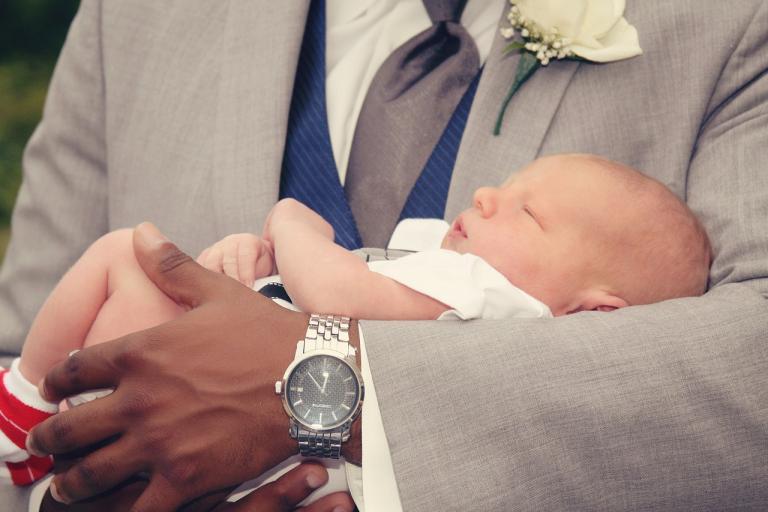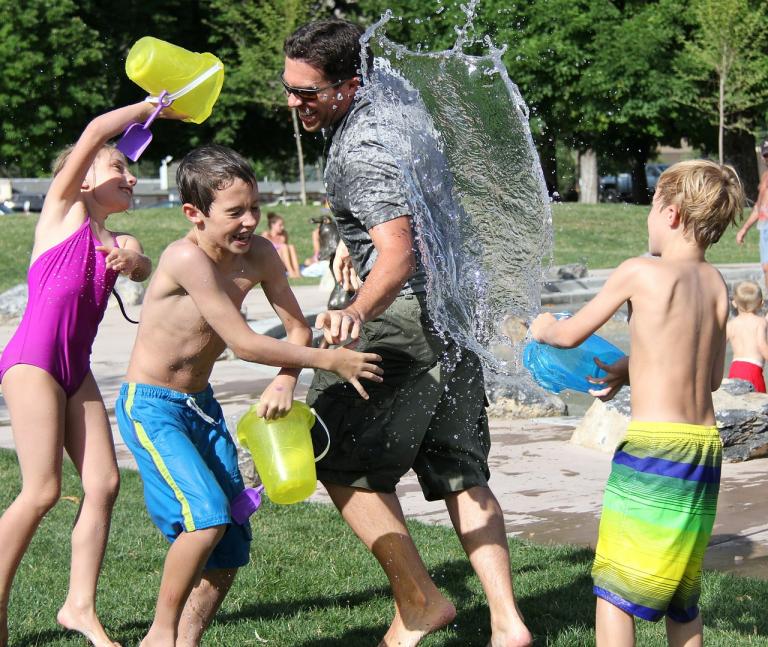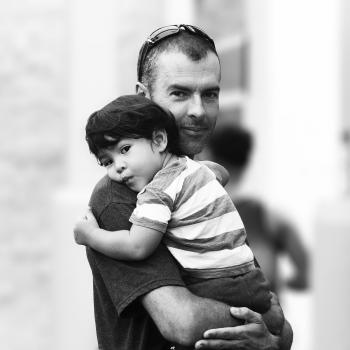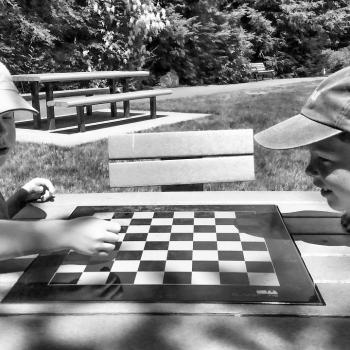Excerpted from original article published in the Holy Name of Jesus Church Bulletin (2001)
Part 2 of a 2 Part series
I began this article about kids in church a few days ago with these words:
I was exhausted. It was 10:35am and I had already used up every ounce of patience in my body. I was crabby, frustrated, and spiritually drained. You see, it was Sunday, and my husband and I had brought our children to church. We have four children ages 6 years and younger – and another one on the way. The service lasted an hour and a half. Need I say more?

Bringing young children to church can be both dutiful and disastrous. Jesus said, “Let the little children come to me,” (Mark 10:14). Sometimes I think this would be easier to do if church services were held on a playground.
And yet, as my husband and I juggled our young children, we couldn’t help but notice the families whose children were behaving quietly and even participating. Week after week these same families demonstrated that it was possible to bring young children to church and “make it work”.
I wanted to be among this elite group. And so, my husband and I started to research what we could do to improve. We observed the families whose children behaved and I interviewed some of them. In addition, I spoke with our pastor and read books on the topic. In all, I gathered some ideas that will help make Sundays run more smoothly – both for parents of young children and the people who sit near them.
The first article listed 3 tips for parents of young children. This article provides the remaining recommendations.
4. Participate
Castleman states, “Baseball and ballet are taught through participation, practice, and patience. Children learn best by doing. Great baseball players are not made in the bleachers … children learn to worship by worshiping – through participation, practice, and patience” (2013).
They also learn by example. Parents need to sing and help their children to sing. Allow the children to put money in the collection basket. Sit near the front so children can see. In addition, explain to your children in a hushed voice what is happening and what is being said. “Participation in every syllable of the service is of major importance in training children to worship” (Castleman, 2013).
5. Know When to Leave
Inevitably, no matter how well we plan, there will come a time when your crying infant or screaming toddler will need to be taken out of church. Fr. Weber’s rule of thumb goes like this: “If one or two people are looking at you, that’s not so bad. If a third of the people are looking at you, consider escaping. If half the people are looking at you, run!”
Young children are going to squirm, some of that is to be expected. However, if the squirming is disrupting the majority of people around you, it is best to leave quietly.
Once you have left the church, the next decision to make is when to return to your seat. Returning when the congregation is singing will be less disruptive. And, it’s better to return without having to make another hasty exit. Carefully judge your child’s behavior before making an ill-timed return.

6. Know Your Children
Fr. Weber believes that the best preparation for Sunday is knowing your children. That means spending as much quality time with them as possible throughout the week. In addition, bring the parenting practices you use at home with you to church. The table manners you expect at home should be brought to the Lord’s banquet.
Finally, remember the true reason for going to church. Worship is for God’s glory, not our own – and God delights in children. As Kay Isca recounts in her book Catholic Etiquette for Children at Mass (2001), “Never apologize for bringing children to church . . . God bless you for making the effort.”
Pamela Patnode will be speaking at the MN Catholic Home Education Conference at the University of St. Paul, MN

















